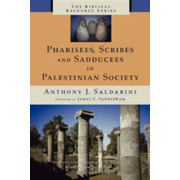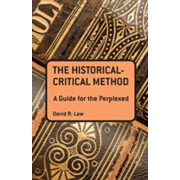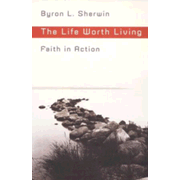WE CONSIDER the text for the Twenty-Fifth Sunday after
Pentecost, which comes to us from the Gospel According to Saint Matthew. In
this reading of the Parable of the Talents, we hear a story about the Kingdom of God. The revelation presents right and future workings while we watch
and wait for our Lord’s return…
“For
it will be as when a man going on a journey called his servants and entrusted
to them his property; to one he gave five talents, to another
two, to another one, to each according to his ability. Then he went away. He
who had received the five talents went at once and traded with them; and he
made five talents more. So also, he who had the two talents made two talents
more. But he who had received the one talent went and dug in
the ground and hid his master’s money.
Now after a long time the master of those
servants came and settled accounts with them. And he who had received the five
talents came forward, bringing five talents more, saying, ‘Master, you
delivered to me five talents; here I have made five talents more.’ His master
said to him, ‘Well done, good and faithful servant; you have been faithful over
a little, I will set you over much; enter into the joy of your master.’ And he
also who had the two talents came forward, saying, ‘Master, you delivered to me
two talents; here I have made two talents more.’ His master said to him, ‘Well
done, good and faithful servant; you have been faithful over a little, I will
set you over much; enter into the joy of your master.’
He also who had received the one talent came
forward, saying, ‘Master, I knew you to be a hard man, reaping where you did
not sow, and gathering where you did not winnow; so I was afraid, and I went
and hid your talent in the ground. Here you have what is yours.’
But his master answered him, ‘You wicked and
slothful servant! You knew that I reap where I have not sowed, and gather where
I have not winnowed? Then you ought to have invested my money with the bankers,
and at my coming I should have received what was my own with interest.
So take the talent from him, and give it to
him who has the ten talents. For to everyone who has will more be given, and he
will have abundance; but from him who has not, even what he has will be taken
away. And cast the worthless servant into the outer darkness; there men will
weep and gnash their teeth.’
(Matthew
25:14-30)
 |
Another Gospel? A Lifelong Christian Seeks Truth in Response to Progressive Christianity By Alisa Childers |
Absentee
Master?
From the community of Matthew we find this message was
given by Jesus through Matthew to Christians who were called into an uncertain
future. After the death and Resurrection of our Lord, being united in Christ through
the power of their baptisms, persons within the early church found themselves facing
very turbulent changes. To walk forward in discipleship thus required great faith. Not
knowing the time of our Lord’s return, the Christians found they were fast
becoming isolated. They surely worried. Even after receiving the gift of the Holy Spirit, there were
those who wanted to bury their heads in the sands of time.
Consider the
plight of these early Christians. In religious practices they progressively grew
more detached from the core population of the parent synagogues. This fell hard
upon them as they met, even more so since the synagogue itself had undergone changes. Because of Roman persecution, the
gathered synagogue community had become less tolerant of religious diversity. We note that the destruction
of the temple in Jerusalem and the defeat of the fortress at Masada by the
Roman authorities had caused profound power shifts within the Jewish religious
scene. After those events, religious dispersal occurred and the influences of political changes had brought the focus upon the surviving Pharisees. The Sadducee and the Zealots... those who had hoped and worked for the overthrow of Roman
power… had been scattered or killed.
It seems those Pharisees that yet remained influential because they had either tolerated or supported Roman rule, promoted that the survival of the faith was to be found in strict obedience to the Law in all respects. By the latter years of the first century, obedient purity was seen by them as surely needed for the survival of Judaism across the far-spread reaches of the Roman Empire. This attitude made the sect known as “Christians” as a further anathema to their singular cause.
It seems those Pharisees that yet remained influential because they had either tolerated or supported Roman rule, promoted that the survival of the faith was to be found in strict obedience to the Law in all respects. By the latter years of the first century, obedient purity was seen by them as surely needed for the survival of Judaism across the far-spread reaches of the Roman Empire. This attitude made the sect known as “Christians” as a further anathema to their singular cause.
 |
Pharisees, Scribes, and Sadducees in Palestinian Society By Anthony J. Saldarini |
You see, those
Christians who were baptized soon changed their view of the Law. They saw religious codifications as that force which drives the faithful to seek salvation in Jesus, and not the mode of salvation.
Therefore they did not have the same fervor for the Law as the Pharisees. As
well, according to the Pharisees, the Christian population had become even more
polluted in behavior. They freely embraced persons who were not Jewish, but were Gentiles not schooled
in Jewish rituals. The puritanical Pharisees thus became keenly aware that time-worn religious dietary
restrictions were not being observed by all. Therefore by the date of this gospel
writing, a schism of religious practices had formed. The Christians were
being cast out and gradually appeared as a separate entities from the parent faith community.
Coming forth from this turbulent setting, the writer reminded within
this story that Jesus had told about talents. The text is thought by biblical scholars
as being originally derived from the lost “Q” (Greek “quelle”, meaning “sayings
source”) document. As we read the text we need realize that, by the power of the Holy
Spirit, Matthew tailored the original teaching of Jesus to his own community’s
needs. Matthew answered an
opportunity to sway his community, which had been cut loose from Judaism. Consequently, he had to light a fire beneath those persons who only possessed tenuous faith expression. Therefore, we find
that this reading differs in certain details from its similar counterpart that is found in
Luke’s gospel (Luke 19:12-27).
 |
The Historical-Critical Method: A Guide for the Perplexed By David R. Law |
Telling Differences!
Here in Matthew, the text was used to encourage workers in the kingdom while they waited for the “end times”. In writing this parable, therefore, Matthew followed the previous text that urged one and all to “keep watch”. He included this inspiring story clearly urging his community to keep working toward the right goals of proclamation and ministry.
Subsequently, in listening to
the telling of the story we find the master's role quickly brings to us to conjure up mental pictures of
our risen Lord. Historically, Jesus had physically left the gatherings of the apostles. Before leaving, however, our Lord had placed the people of Matthew’s church under
the care of the Holy Spirit. But even gathered in the Spirit with Matthew's scribal pen guiding, the parable revealed that threefold possibilities existed for the followers of Christ. Each person or community could work as
divided by their master, according to how many “talents” each had been given. This showed
the master to be perceptive as to the individual resources of each person.
However, we read that when the master returned... a great malady arose when it was revealed how many talents were earned by each. The unfolding sequence told that one servant was given five coins, another two, and a last just one. Looming large was that they did not equally respond to the gift. Presumably, we might say that their ability and faithfulness in working the gift was the criteria that governed how much each worker accomplished.
However, we read that when the master returned... a great malady arose when it was revealed how many talents were earned by each. The unfolding sequence told that one servant was given five coins, another two, and a last just one. Looming large was that they did not equally respond to the gift. Presumably, we might say that their ability and faithfulness in working the gift was the criteria that governed how much each worker accomplished.
The master was proven more than correct in the character appraisals. Two persons doubled
their gifts; whereas, one person who had been trusted with little, buried his gift… hiding it so that there was no chance of either loss or prosperity. Thus the last worker became the story's imperative, negative example for the Matthean
community.
 |
The Life Worth Living: Faith in Action By Byron L. Sherwin |
Today we rightly note that the disciple that did not take the task seriously… and therefore avoided being daring even to a minor degree… failed the future purposes of the master. Therefore, upon the master's return, he aptly rewarded the first two workers and severely punished the last. The text thus reveals similiar terms to our church population.
We see that Matthew, previously a tax collector, had long known that those who could not pay taxes to the Romans at the intersections of the empire, were punished severely. Thus it was that any disciple being cast into “outer darkness", was a symbolism that his community could understand. Therefore, the task of any community undergoing immobilizing uncertainty was clearly spelled out. We thus are called by the text to work diligently for an increase in the kingdom of God.
Therefore the
parable is about our faith response to that which is given to us. Do not be deceived!
The story is not about earning money. Since the money expressed in the story is the
largest coinage, for us it represents a wealth in that day that was far beyond a trade person’s income. Five
talents was a wealth that was not possible to acquire in the norm. I offer that
the talents, therefore, represent not money…. but rather faith active in love that is given by the
Holy Spirit through baptism. The more you use it, the more you receive! If you don’t use it..,
you lose it.
We are reminded of an Old Testament proverb as we consider the turbulent
days in which this text was written. The writing speaks concisely of those who refuse to grow
in faith out of fear, laziness, faithlessness, and evil. These wait until it is
far too late…
The
sluggard does not plow in the autumn; he will seek at harvest and have
nothing. (Proverbs 20:3-4)
Consequently, Matthew called the people of the early Church communities
to stay actively faithful. Through this parable from Jesus, he called them to work
profitably… proclaiming the Good News of the Kingdom of God each and every day. Through Matthew then, Jesus states clearly to all Christians that their work will be rewarded in
double measure by the Father. Greater faith shall be forthcoming even unto us, while those who fail to invest their very lives and love into kingdom growth will lose everything.
Brothers and
sisters in Christ… the lesson told is clear: Readiness to witness in faith is not a passive,
watchful rest for Christians. Faith demands assertive action in witness. Much evangelical dust was raised by Matthew’s readers and listeners as they worked to provide
the news of Christ across the lands of Syria, Asia Minor, and the Orient. We are also called
as such to work in the yet sinful dust of today’s world. Let us ask forgiveness from God for our sloth. May we be sent for ministry in faraway
lands or simply to our Pharisaic neighbor working hard down the street. Surely, when your ministry's
dust finally blows in the Spirit to rest upon any crossroads where mere talents are traded, we shall see that Matthew rightly assured us. Faithful working
in the world shall reap great rewards.
Please be invited to watch a video on this topic...
Are We Investing Our Talents?


No comments:
Post a Comment